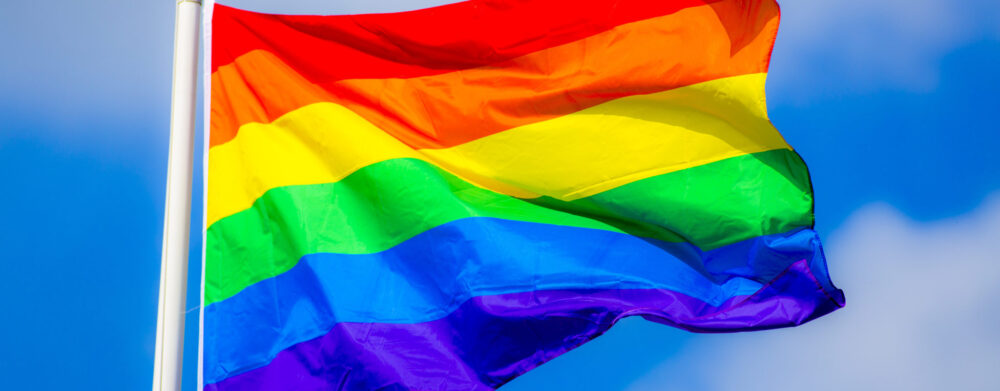Understanding Transgender Discrimination in New Jersey
Transgender discrimination is a form of employment discrimination. Any employee who is ridiculed, denied employment or promotion, or suffers harassment in the workplace because of their gender identity or expression may be entitled to file an employment discrimination claim. Though federal and state laws are still evolving, and a recent Supreme Court case marked a significant milestone, many contend that they have a long way to go when it comes to direct protection for the transgender community.
With offices in Red Bank, NJ, Marlton, NJ, Newark, NJ, New York, NY, and Philadelphia, PA the transgender discrimination lawyers at McOmber McOmber & Luber, P.C. advocate for the rights and protections of the lesbian, gay, bisexual, and transgender (LGBT) community, as well as victims of workplace discrimination related to age, race, gender, national origin, pregnancy, and more. When an employee suspects that he or she has been a victim of transgender discrimination in the workplace, it is critical that they consult a qualified employment lawyer with experience handling transgender discrimination cases in New Jersey.
Transgender Protections Under Title VII of The Civil Rights Act Of 1964
Title VII, originally intended to end race discrimination in the workplace, also provides protections against gender discrimination. In several previous cases, this law has been successfully used to defend the rights of the transgender community by arguing that gender identification falls under those protections.
Many times, complaints regarding sex discrimination and gender identity discrimination have been similar enough to make a case under Title VII. For example, issues related to dress codes are common to both transgender workers and cisgender workers alike. Harassment is another commonly cited problem in many workplaces. Examples of harassment that affect both groups include teasing, sexual harassment, and inappropriate comments and behavior that can lead to a hostile work environment.
A recent Supreme Court decision made federal transgender protection under Title VII more explicit.
Transgender Discrimination and the June 2020 Supreme Court Decision
In a historic 6-3 decision on June 15, 2020, the Supreme Court ruled that an employee cannot be fired for being gay or transgender under federal law (Bostock v. Clayton County, Georgia, No. 17-1618 (S. Ct. June 15, 2020)[1]). This case was brought by three workers in Georgia who claimed that they were fired from their jobs because they were gay or transgender. By focusing on the plain text of Title VII of the Civil Rights Act, the Court determined that “it is impossible to discriminate against a person for being homosexual or transgender without discriminating against that individual based on sex.” For example, if an employer fires a man who identifies as a woman, but would not fire a cisgender woman for the same cause, they are taking action because of gender.
While workers in roughly half the country had previously been protected by local laws that prevented transgender discrimination, this was the first time employers were barred from firing transgender employees on a federal level. This development is a milestone for the transgender community and is sure to have wide-ranging effects on transgender discrimination cases in New Jersey and across the country.
What is Considered Transgender Discrimination in the Workplace in New Jersey?
Some believe that there is a thin line between joking with a co-worker and discrimination. However, discrimination occurs whenever a person’s gender, gender identity, or perceived gender or gender identity is the subject of inappropriate behavior, both verbally and physically. Common examples of transgender discrimination in the workplace include:
- Making unfavorable employment-based decisions on the basis of a person’s transgender status.
- Demoting, firing, laying off, or otherwise denying employment privileges because an employee has undergone or is planning to undergo a gender transition.
- Instituting dress or grooming codes that unfairly target transgender workers.
- Denying a transgender employee access to restroom facilities.
- Intentionally and persistently failing to use the name and gender pronoun that corresponds with the employee’s gender identity, after having been corrected.
Protections For The Transgender Community In New Jersey
Currently, there are 21 states plus the District of Columbia that have explicitly banned discrimination based on gender identity in both public and private employment. Additionally, there are nearly 300 cities and counties in the country with similar bans. Furthermore, many companies have taken it upon themselves to add anti-discrimination policies that include transgendered people in their protections. New Jersey is one of the 21 states that has strong laws that protect an individual’s right to their own gender identity and expression.
In 1991, the state amended New Jersey’s Law Against Discrimination (NJLAD) to include protection for people based on sexual orientation, then amended the law again in 2006 to include gender identity. The NJLAD now strictly defends against transgender discrimination in the workplace or public accommodations. The law also includes the same protections for perceived sexual orientation or gender identity.
An NJ Transgender Discrimination Lawyer Can Help You
Before filing a complaint under the NJLAD or federal law, employees who feel they have been the victim of transgender discrimination should contact McOmber McOmber & Luber, P.C. first to discuss your rights and options.
Every person should be given respect and feel safe while at their place of work. If you have worked in a hostile work environment or suffered transgender discrimination in the workplace, call our Red Bank, NJ, Marlton, NJ, Newark, NJ, New York, NY, or Philadelphia, PA office or contact us online today for a free consultation. We will discuss your rights and options, which may include internal complaints or a lawsuit, and help you every step of the way in seeking justice for unlawful workplace discrimination.

